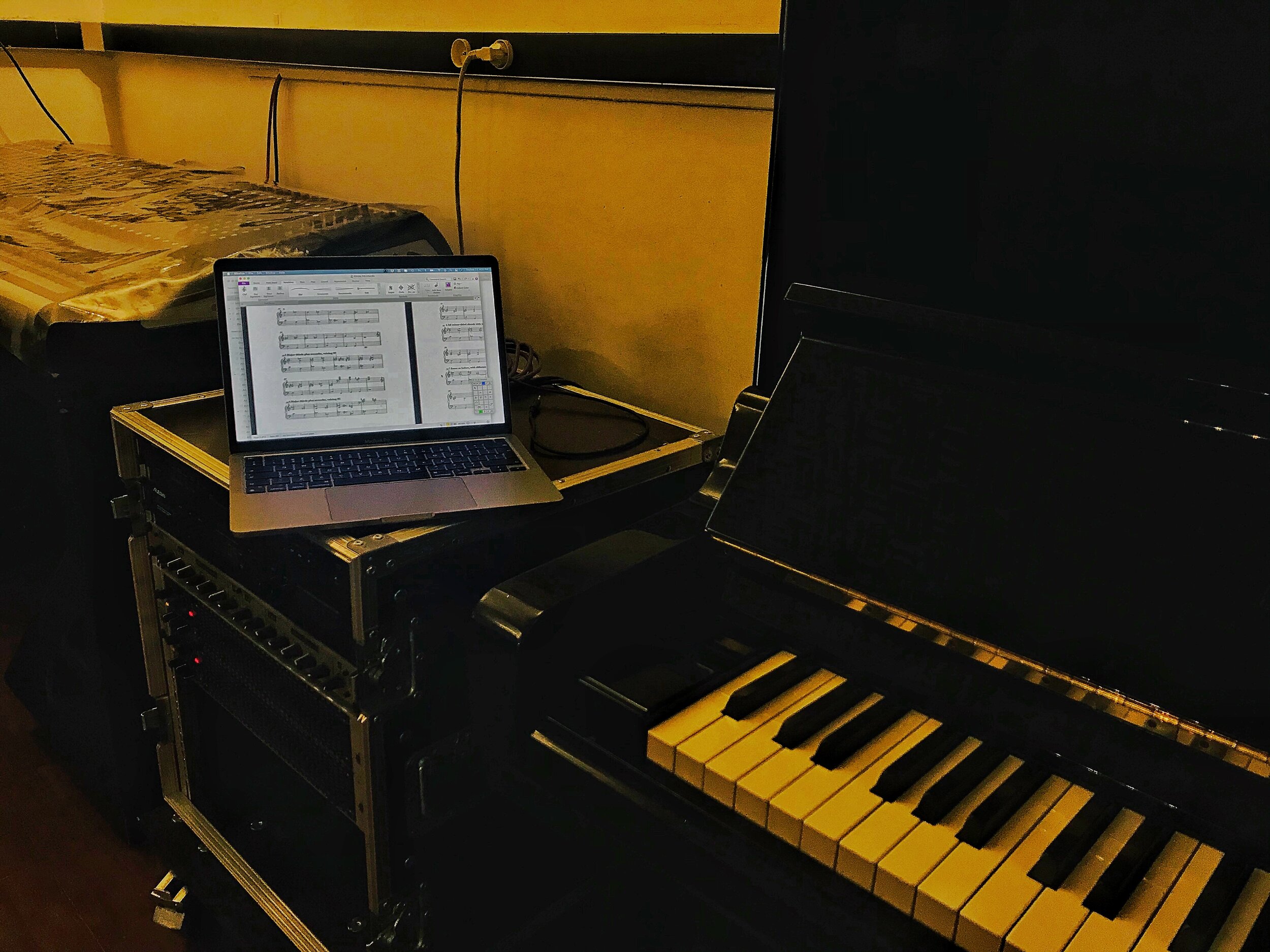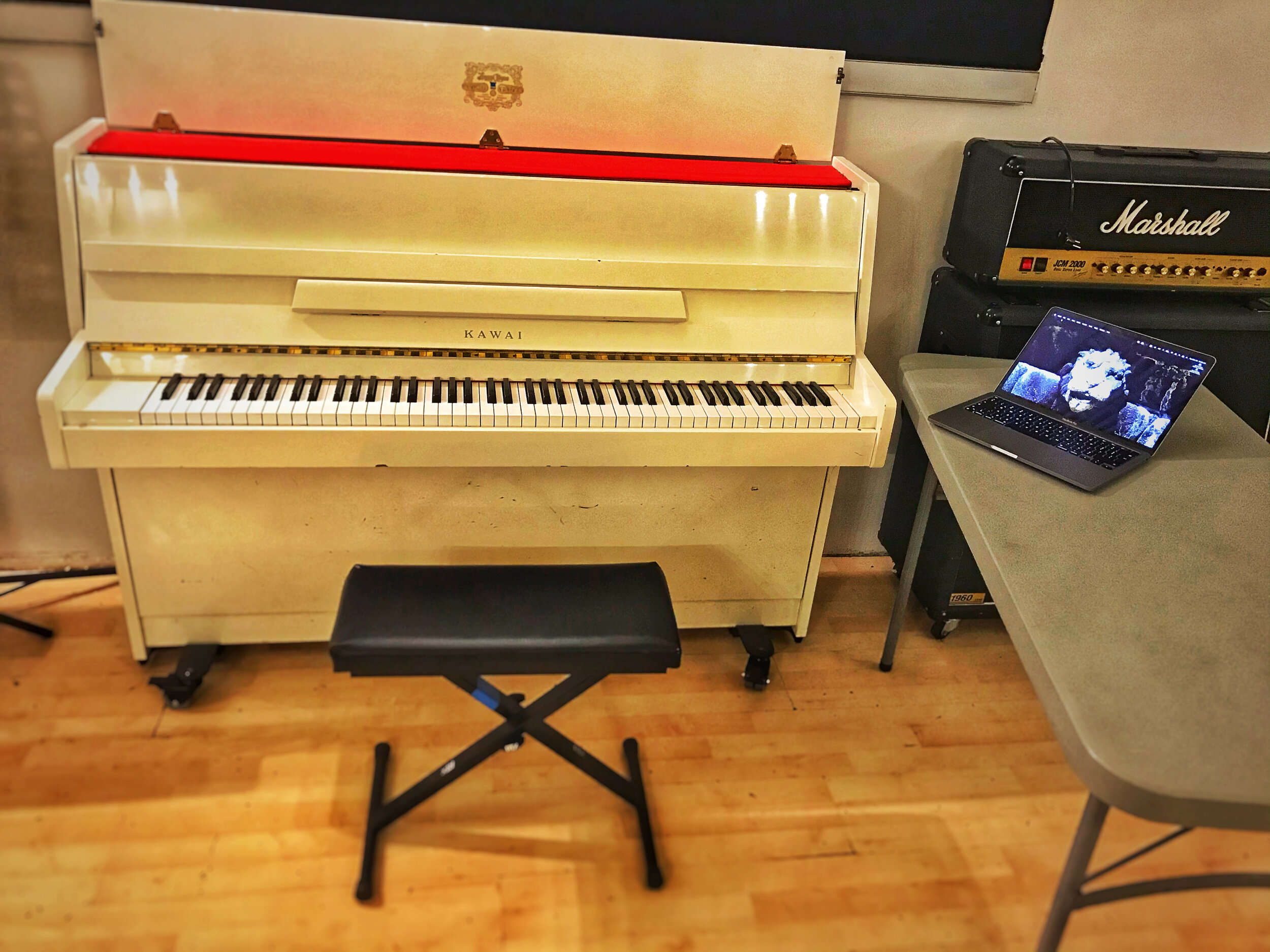I recently completed another creative project: the 5-Minute Voice, a series of 52 video clips introducing concepts and exercises for you to play with your voice. In celebration of its publication, I thought I’d share its metaphysical backstage with you.
Warning! This post is right-brained and full of jokey non-sequiturs. If you prefer to read a sober-minded description of the 5-Minute Voice, click here.
The mother of a creative project is Mystery, and the father is Curiosity. You think you have some clear, ostensible reason to do something, a well-defined practical goal. But what really moves you forward probably lies outside your intellectual consciousness. Don’t get me wrong: It’s good to have well-defined goals. But it’s also good to “allow the stinky fumes of intuition to mingle with the fresh air of the well-ventilated workshop.”
The 5-Minute Voice was likely born when I was born and let out my first whimper (“Why me, oh mother?”). Then it was born again when I was in college and a solfège teacher complimented me on my voice and invited me to take part in a Sunday service at the church where he played the organ. Then it was born again when I trained in the Alexander Technique (a philosophy that was born of its founder’s vocal troubles), at which time I also took my first actual singing lessons with the late Roy Hickman of Elephant & Castle. Then it was born again when I started taking singing lessons with the late Cornelius L. Reid of West End Avenue. Then it was born again when Cornelius passed away and “I became my own voice teacher, for better and for worse.” Then it was born again in 2017, when I produced an early round of 52 vocal clips which should have been subtitled “Maybe.” And today it’s now reborn as a thing-in-itself and a culmination-in-progress (“Oh mother, why me?”).
A creative project might undergo multiple iterations. You achieve a version, you like it very much, you share it with the world, the world appreciates your efforts. Then somehow you go deeper into the project’s potentialities, and you come up with quite a different version—the “final” one. And sometime later you see that your final version is a stepping stone, a necessary and inevitable approximation. “Creativity likes movement and distrusts finality.” This year I turned 66. I may have another 15 or 20 years left on this earth to create another few versions of the 52. Then I’ll revise the 52 Infinitely And For All Eternity, unless the maggots get me first.
Amazingly, even in Infinite Eternity the 52 will have its flaws, its incoherences, its blind spots, its zits in its bits. “Creativity is perfect in herself; a creative project is imperfect in himself.” “Don’t confuse the two.” “What’s with the quotation marks, Pedro?” I mean, it’s good to work to high standards, but it’s also urgently good to agree to the Imperfectus of life and of human beings. Two perfectionists met in a bar. They didn’t get along.
What’s the Supply Chain Pyramid of a creative project?
Receive an inkling
Sit with it for a while
Play with it, poke it with a long stick
Play with it, poke it with a short stick so help me God
Sketch it, and give yourself permission to be laughably incompetent
Computer, software, camera, tripod, microphone, shower and shave, shirt,
press the button, perform, perform redundancy just in case, hydrate, nap, walk
Edit, edit, edit, edit, edit, edit, edit, edit, edit, edit, edit, edit, edit, edit, edit, edit, edit
Publish and go hide
Let me explain, so-called. “To bypass the inkling is to chew gum with your nose.” Try it. And record yourself doing it, I’d like to see how it works. “Long stick short stick makes a project tick.” The Creative Cemetery has multiple tombstones with the following epitaph carved in granite: “Poked the project with the short stick too soon.” The camera, tripod, and all the rest are totally secondary, even though you can’t finish the project without them. Redundancy helps a lot. Make and record the same mistake seven times, then choose one of the seven as “the work of art.”
©2024, Pedro de Alcantara






















